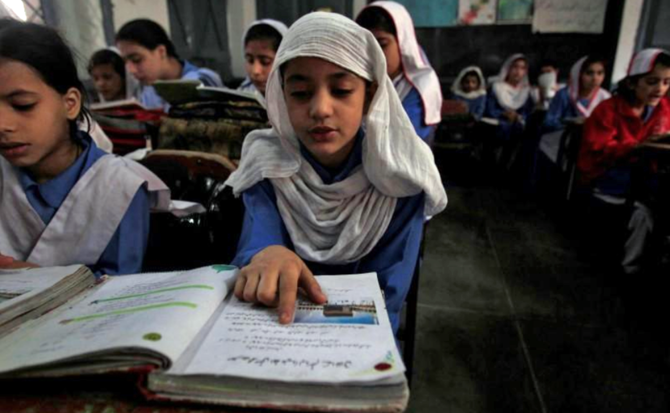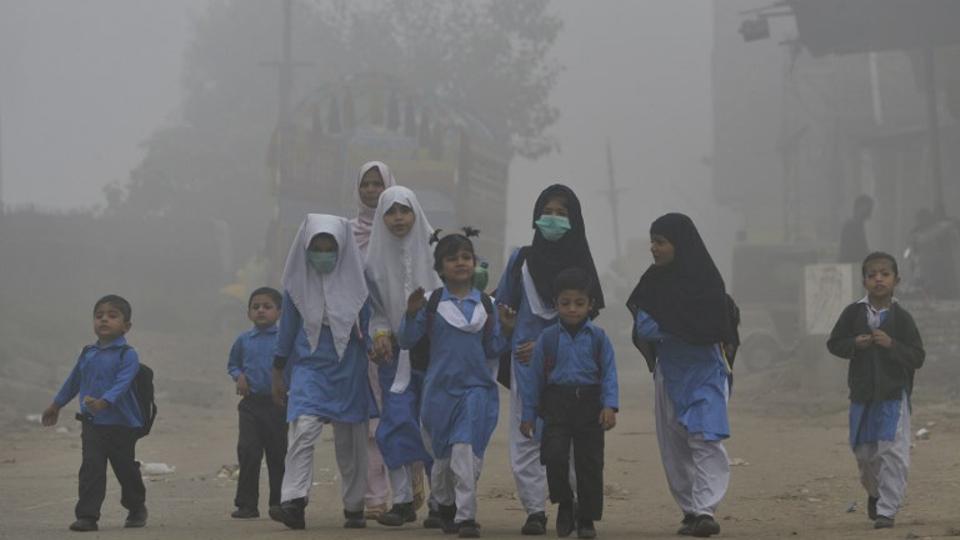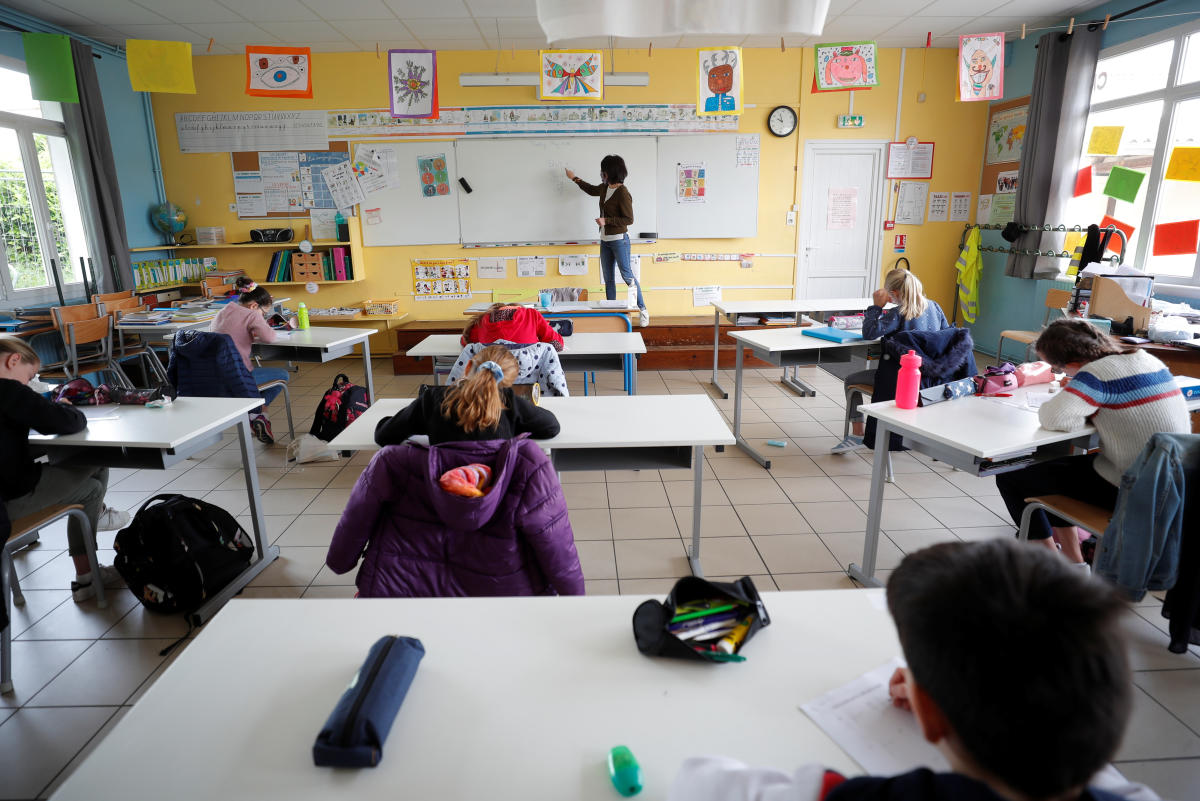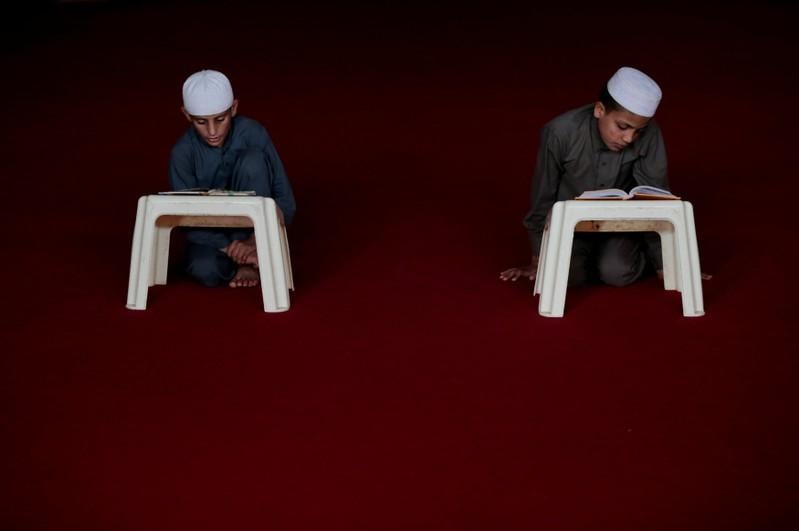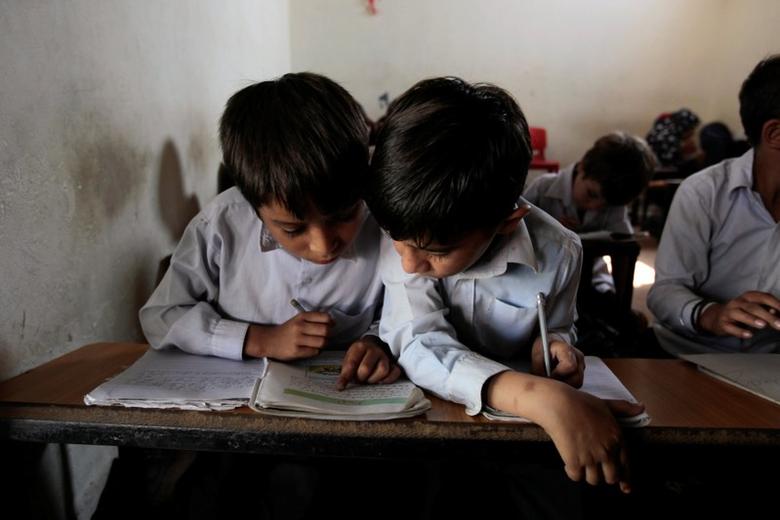Tinkering with the future
Can the SNC cure Pakistan’s educational apartheid or will it do more harm than good?

Leaders and opinion-makers often remark that our children are our future. But still, our country’s investment in what is the most valuable tool we can equip them with has been perennially poor.
Despite tall claims from successive governments and generous funding from international donors, the standard of education available to most of our citizens has been shockingly poor. Meanwhile, the few private schools that do manage to impart quality education have unwittingly created a situation some observers have described as ‘educational apartheid’.
While children who attend expensive private schools learn skills that at least allow them to be competitive on a global level, their public school and madrassa counterparts lag far behind through no fault of their own and remain condemned to a bleak future.
To both improve the long neglected education sector and end this cycle of inequality, the Pakistan Tehreek-e-Insaf government announced it would introduce a ‘Single National Curriculum’ (SNC) to be followed by all schools in the country, be they public, private or religious. To this end, the Ministry of Federal Education and Professional Training reconstituted the National Curriculum Council (NCC) and brought educationists from both public and private sector together with representatives from various madrassas.
Recently, the centre released a glimpse of what this new curriculum might look like. But where it hoped to attract appreciation for its noble intentions, the actual reaction to its proposed SNC outline was far more mixed. In particular, many of those who currently work in the country’s education sector expressed serious concerns about the scope, content and practicality of implementing the new uniform curriculum.
A glance at the goals of the SNC
Under the federal government’s vision, the SNC is designed to bring all children on a level playing field while overcoming gaps in the currently followed National Curriculum 2006. Some of the key aspects of the SNC outline in the document shared by the government on social media include an outcomes-based approach, the inclusion of emerging international trends and information and communication technology (ICT), promotion of intellectual, spiritual, aesthetic, emotional, social and physical development among learners, incorporation of values and life-skills based learning, induction of critical and creative thinking, and moving away from rote learning.
In addition to that, the SNC, as claimed by the government, has been designed to teach different life aspects to children which had never been taught in Pakistan before at the primary level, including entrepreneurship, holistic comprehension of contemporary issues, digital citizenship, ways of interacting in online spaces, and diversity of faith, tolerance, and compassion within the framework of the teachings of Qur'an and Sunnah as well as the Constitution of Pakistan.
Shedding light on the goals of the SNC, Dr Mariam Chughtai, who was part of the curriculum committee, said that the curriculum development exercise was driven by goals of inclusion, transparency, and equity.
“In a first, Pakistan’s national curriculum was drafted following a comprehensive and democratic process,” said Dr Chughtai, who is an assistant professor at the LUMS School of Education and holds a PhD in Education from Harvard University.
“Four hundred people from across the country worked on eight subject areas for pre-kindergarten to grade five.”
She explained that committee members included representatives from all provincial textbook and curriculum boards, including Kashmir and Gilgit Baltistan, along with members of private schools, madrassa associations, cantonment and garrison boards, and university professors.
“It took the committee more than a year to meticulously design the curriculum which maintained buy-in and transparency for all stakeholders,” Dr Chughtai said. “It was not easy to make this curriculum, [but] a shared aspiration to treat all children in our country as our own kept us going.”
Criticism and response
Ever since the Federal Minister for Education Shafqat Mehmood shared some of the basics of the SNC with the public on social media, there has been an ongoing debate about the nature and scope of the curriculum. Some renowned educationists, journalists, and civil society members have pointed out that the curriculum is excessively religiously inclined, a move that could potentially sabotage scientific thinking and impose rote learning and memorisation in schools. Eminent academics are also of the view that mixing religion with national psyche through textbooks is evident from incidents like mob lynching at university campuses and glorification of killing in the name of religion.
Others have dismissed the SNC as overly ambitious and have expressed concerns about the hurdles that schools might face at the time of implementation.
People have raised questions related to the language of instruction, the redesigning of textbooks, potential problems that public schools could face related to the teaching methods and be at par with private schools, and implementational autonomy for private schools.
That apart, teachers’ training, the potential effects of the sudden change on students’ learning abilities, the position of madrassas, the lack of time (the implementation of the SNC will start in 2021), and its possible impact on the quality of education, among others, have been part of the ongoing debate for many weeks across the country.
“In my opinion, the government has been too ambitious in its approach. Instead of an all-out overhaul of the curriculum for all types of schools, especially madrassas, there should have been some pilot testing to gauge the outcomes,” a senior headmistress from a renowned school in Lahore, who chose not to be named, told The Express Tribune.
“Such radical changes look good on paper, but as someone who has been overseeing the functioning of schools for more than two decades, I can say that it would be quite difficult to meet the expected outcomes. Let us hope that the SNC does not turn out to be a fiasco.”
Education advisor and researcher Aanya Niaz said the effort to create a Single National Curriculum through a democratic process, one that sought representation from across provinces, deserves acknowledgement. But despite the proposed intention to create a new curriculum to serve as an equaliser, the draft documents at hand offer several causes for concern.
“Not much has changed in terms of content across subjects and grade levels. This is despite mounting evidence that many Pakistani students can barely read or write a single sentence at their grade level, whether it be in English or Urdu. This expands to the sheer quantity of content as well; public and low-cost private school teachers frequently cite the enormity of syllabi they are required to complete in a short period, directly rooted in the National Curriculum,” said Niaz, who holds an MSc in Education from the University of Oxford and has led multiple curriculum development projects in Pakistan.
“Add to this the mandated teaching and learning in English, a language that is foreign to the majority, and rote memorisation quickly becomes the only way to pass.”
Shedding light on the assumption that the SNC will not be mandated in private schools, Niaz said the idea instantly contradicts the premise upon which it is created – as an equaliser.
“If private schools can continue to enjoy autonomy in selecting their guiding curriculum, then how will it be the same as that used in public schools, madrassas, and even low-cost private schools?”
Agreeing with many other Pakistani educationists and intellectuals, Niaz pointed out the deeply problematic assumption that the recitation of the Qu’ran, as required by the SNC, will continue without Qaris / Hafiz teachers.
“At present, the teaching of a biological reality – reproduction – is seen as a sin by religious clerics [and conservative politicians] in the country. It is difficult to believe they will allow any form of 'mispronunciation' of the Qu’ran in schools, especially now that it is a mandatory component of the curriculum.”
Responding to the criticism, especially in terms of labelling the SNC to be unnecessarily inclined towards religious teachings, Dr Chughtai said that people have been resorting to undue censure of the curriculum even before it has been officially released.
“I can tell you this much that the Islamiyat curriculum was designed through a highly deliberative and collaborative process between representatives of five major schools of religious thought. By keeping it inclusive of alternative religious orientations, the curriculum is by default promoting exposure, curiosity, and tolerance towards multiple faith perspectives, a move which has been unprecedented in Pakistan's 72 years of education reforms.”
She added: “As for memorisation, claims that the curriculum requires kids to hifz the Qu’ran by grade five are simply not true. Nor is it true that the curriculum requires madrassa graduates to be hired as paid teachers inside schools,” she clarified. “To help with Qu'ran recitation, the curriculum suggests teachers either play the audio of good recitation of the Qu’ran or seek help from an educated person with such expertise. Neither is binding nor required.”
Dr Chughtai said that claims about the amount of Islamiyat content in regular schools surpassing that of the Madaris has also been debunked by Dr Fakhar Bilal, who has a PhD on the subject of 70 years of Pakistan's madrassa reforms.
Implementational challenges
Speaking about the potential challenges that schools might face in implementing the SNC, Froebel Education Centre’s head Mariam Shera said that it would be gruelling for any school to adapt to major curriculum changes unless given timely support and an extensive period of adjustment.
“[While the transition would not be particularly difficult for well-established private schools which are already imparting high-quality education], our public schools might face several challenges when implementing the SNC,” Shera said. “To expect them to manage this transition without a proper plan and infrastructure would be very difficult. Therefore, policymakers need to take it slow and steady instead of bringing about overnight changes if they wish to see positive and long-term improvements.”
Shera stated the changeover would take three to five years on average to bring the public schools at par with private ones, and an even longer time when it comes to madrassas.
In terms of teachers’ training, she added that the government will have to invest in strategies that would break the cycle of bad teaching.
“Most teachers use the same teaching methodology that their tutors used in school. When dealing with a new curriculum, however, there will be many instances where teachers will be frustrated because they are not equipped with the tools to teach certain subjects.”
She added: “In my opinion, more than a uniform single curriculum, what is needed is good-quality teachers’ training where the emphasis is on bringing the best out of prospective teachers and their students. Unfortunately, limited resources have hampered the quality of our educational standards. We now have to prioritise education and spend money in the right direction so that all students in Pakistan can equally benefit.”
There have also been speculations regarding the language of instruction that schools would be required to follow when implementing the new curriculum. According to Shera, the medium of instruction would need to be strong if any gaps are to be bridged.
“In the first phase of the curriculum’s implementation, both English and Urdu need to be incorporated and students should be encouraged and trained to think in both languages. As good quality Pakistani books in English and Urdu are non-existent, this issue would need to be taken up on an urgent basis,” she said.
On the other hand, the All Pakistan Private Schools’ Federation (APPSF) President and educationist Kashif Mirza lauded the efforts of the government and said that some forces in the country had always been opposed to the introduction of a uniform educational system in the country which, in turn, has given rise to the prevalent class system. He also discussed another type of implementational hurdle that schools could face.
“The national curriculum symbolises our country’s social values, ideology, and significance of the Islamic code of life. If the government is serious about introducing a uniform curriculum, then the private sector has no objection to it,” he said. “However, an influential section of the private education system is against the uniform curriculum in the name of international standards. The authorities will have to be aware of these obstacles when implementing the SNC.”
When questioned about implementational problems, which madrassas and public schools could face in terms of teaching subjects in the English language, Dr Chughtai clarified that the government has set up a separate committee to decide the medium of instruction, adding that the committee is still deliberating on the issue.
“As of now, there is a lot of research-based support for allowing textbooks in a child's mother tongue and Urdu, particularly if s/he comes from a part of the country which does not speak Urdu or English fluently,” Dr Chughtai said.
“Teaching in a language that a young child cannot comprehend leads to early dropout from schools and rote memorisation for those who stay. Education remains a provincial matter. The 18th Amendment to the Constitution gives the decision of curriculum and textbooks to provinces, which includes the language of instruction. Provinces also have the autonomy to change or reject this curriculum if they so desire.”
Speaking at the third meeting of National Curriculum Council, Minister for Federal Education Shafqat Mahmood also clarified that there should be no confusion regarding the mode of language for the single national curriculum.
“The teachers would teach in the same language in which student feel comfortable,” he said.
Will provinces be on the same page?
While the government claimed to have designed the SNC with the intention to use the same teaching methods and materials across all schools and madrassas in Pakistan, provincial educational boards do not seem to be on the same page with the centre yet.
Speaking to The Express Tribune concerning the technical aspects of the SNC, the Bureau of Curriculum and Extension Wing (BCEW) Sindh's Director, Asghar Memon, said that a chunk of the SNC’s content is only a repetition of the National Curriculum 2006. “Sindh has already included 97% of these items in its curriculum, which is largely activity-based and is focused on students’ learning outcomes,” he said.
“The SNC has made major changes in Islamiyat instead of focusing on learning outcomes of other subjects.”
When questioned about the implementation of the SNC in Sindh, Asghar Memon said that the decision is up to the sindh chief minister and the provincial education minister.
“It is up to the higher authorities, but in the light of the 18th Constitutional Amendment, the Sindh Law Department has already opposed the implementation of the federal curriculum in the province.”
Expressing his reservations regarding the functionality of the SNC, former academic committee member at the Board of Technical Education Khyber Pakhtunkhwa Professor Naeem Butt said the implementation of the curriculum will be a tough exercise for provinces.
“Even in countries like the United States and India, a uniform curriculum has not been imposed in keeping with the diversity of different areas within those countries,” Professor Butt, who works at Peshawar University’s Institute of Education and Research and formerly served as a visiting Fulbright scholar at the College of Education, UMass Amherst.
“We do not need a uniform national curriculum, rather the government must first invest in teachers’ training and the enhancement of facilities across public schools. The implementation of the SNC will be a violation of the 18th amendment.”
Punjab Teachers Union (PTU)’s General Secretary Rana Liaqat Ali, who has years of teaching experience across public schools, said the federal government and the provinces had been engaged in a cold war concerning the introduction of a single curriculum and a uniform educational system for a long time.
“There have been ongoing disagreements between provinces over the introduction of Urdu as the national language, based on which textbooks were introduced in all four provinces of the country,” Liaqat Ali said.
He added that in Punjab, Urdu is compulsory and is used as the medium of instruction, but in Sindh, Balochistan, and Khyber Pakhtunkhwa (K-P), regional languages are given priority and have remained prevalent in academia as the medium of instruction. Moreover, students in these provinces learn Sindhi, Balochi, and Pashto, respectively, as learning these languages is compulsory.
“After the 18th amendment, when education became a provincial matter, each province further promoted its regional languages in academia and schools. However, academic experts in the provinces kept forwarding recommendations to the centre, saying that education is a national matter and should not be heterogeneously treated in the country,” he said.
“Finally, the PTI-led government has succeeded in introducing a uniform curriculum and has also convinced provinces to introduce Urdu as the medium of instruction. It should, however, be clarified that having Urdu as the medium of instruction does not imply that the English medium of instruction will be eliminated. In fact, the English language as a subject has been made compulsory for all classes.”
The way forward
Sharing her views on the expected outcomes of the SNC, Mariam Shera lauded the government’s attempt and said that a uniform curriculum system set up at an internationally-competitive level would be excellent for both public and private schools in Pakistan as long as it is in harmony with the needs of the 21st Century, adding that the educational system has long required a reform.
“We need more imagination, research, understanding, critical analysis, out-of-the-box thinking, collaboration among students, and some humour,” Shera said. “What we do not need is rote learning, sermonising, moralising, dictation and propaganda. To make the curriculum a success, we need details on how it will be implemented effectively and practically to get the best out of it.”
Dean at Islamia College Peshawar Professor Sareer Bacha opined that the idea of introducing a uniform curriculum is commendable, particularly the inclusion of madrassas in the plan.
“A uniform curriculum will not only centralise the examination system across Pakistan, but it will also improve the overall educational system in the country,” Professor Bacha said. “We hope to see the successful implementation of the SNC.”
Aanya Niaz said that reestablishing the Single National Curriculum as a “minimum standards curriculum” might be more helpful.
“[The centre should] also clarify the extent to which schools across the country can recognise their agency in adapting the SNC to fit their students’ needs.”
According to LUMS School of Humanities and Social Sciences Assistant professor Dr Tania Saeed, education, curriculum, planning, and delivery is the responsibility of provincial governments. She said that if quality is the objective, then decentralised processes should be strengthened to address specific needs on the ground, with students and teachers central to this discussion.
“Such decentralised mechanisms are all the more important if we want to deal with issues of implementation,” Dr Saeed said. “Differences in quality of education delivery not only exist across provinces but also within provinces at the district and tehsil levels, and even within schools.
She opined that provincial governments should be drafting the curriculum, a process that should be informed by students and teachers from across all districts, with representation across ethnicities and religions in the consultation process.
Concluding her remarks, Dr Chughtai said that the curriculum is the result of a lot of hard work, but it is nonetheless human effort.
“It is only through constructive criticism and learnings from the field that we will be able to improve upon a good start in the right direction,” she said, adding that a uniform curriculum should be a floor, a minimum standard below which no kid should fall, rather than a ceiling beyond which no student can rise.
“Although the divide between rich and poor schools is massive, and perhaps can never be completely closed, it can certainly be reduced in Pakistan. By ensuring that there is a minimum standard of education, a common core across various types of schools, we can lay the foundation of a system that works for more children than it currently does.”
STORY: SARAH B HAIDER
ADDITIONAL INPUT: SAFDAR RIZVI, WISAL YOUSUFZAI & YOUSUF ABBASI
PRODUCED BY: NIHA DAGIA & ZEESHAN AHMAD
GIF: MOHSIN ALAM, IBRAHIM YAHYA
PHOTOS: REUTERS, AFP


